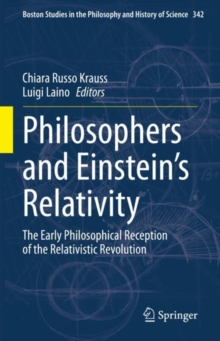
Naturalistic Epistemology : A Symposium of Two Decades PDF
Edited by A. Shimony, Debra Nails
Part of the Boston Studies in the Philosophy and History of Science series
Description
1. AIMS OF THE INTRODUCTION The systematic assessment of claims to knowledge is the central task of epistemology.
According to naturalistic epistemologists, this task cannot be well performed unless proper attention is paid to the place of the knowing subject in nature.
All philosophers who can appropriately be called 'naturalistic epistemologists' subscribe to two theses: (a) human beings, including their cognitive faculties, are entities in nature, inter- acting with other entities studied by the natural sciences; and (b) the results of natural scientific investigations of human beings, particularly of biology and empirical psychology, are relevant and probably crucial to the epistemological enterprise.
Naturalistic epistemologists differ in their explications of theses (a) and (b) and also in their conceptions of the proper admixture of other components needed for an adequate treatment of human knowledg- e.g., linguistic analysis, logic, decision theory, and theory of value.
Those contributors to this volume who consider themselves to be naturalistic epistemologists (the majority) differ greatly in these respects.
It is not my intention in this introduction to give a taxonomy of naturalistic epistemologies.
I intend only to provide an overview which will stimulate a critical reading of the articles in the body of this volume, by facilitating a recognition of the authors' assumptions, emphases, and omissions.
Information
-
Download - Immediately Available
- Format:PDF
- Publisher:Springer Netherlands
- Publication Date:06/12/2012
- Category:
- ISBN:9789400937352
Information
-
Download - Immediately Available
- Format:PDF
- Publisher:Springer Netherlands
- Publication Date:06/12/2012
- Category:
- ISBN:9789400937352










